Choosing Mental Health Medications During Pregnancy Isn’t About Risk vs. Safety - It’s About Balance
You’re pregnant. You’ve been managing depression, anxiety, or bipolar disorder for years. Your doctor says you can keep taking your medication. But then you hear a friend say, “I stopped everything when I got pregnant - and I’m fine.” Suddenly, you’re stuck. Do you risk the baby? Or risk your own mental health?
The truth? There’s no perfect choice. But there is a better way to decide - one that puts you in control, backed by real data, not fear.
Shared decision-making isn’t just a buzzword. It’s the standard now. And it’s the only way to navigate this without feeling abandoned or misled.
What Happens If You Stop Your Medication?
Many women stop their psychiatric meds the moment they find out they’re pregnant. Fear of birth defects is powerful. But here’s what often gets left out: stopping meds can be just as risky.
Studies show that if you have moderate to severe depression and stop your medication during pregnancy, your chance of relapse jumps to 80%. That’s not a guess. That’s from the National Pregnancy Registry for Psychiatric Medications, tracking over 15,000 women since 2010.
Relapse doesn’t mean just feeling sad. It means hospitalizations. Suicidal thoughts. Inability to eat or sleep. Missing prenatal appointments. And yes - it increases the risk of preterm birth by 30-50%, and maternal suicide risk by 20%.
Untreated mental illness doesn’t stay inside you. It affects your baby. Lower birth weight. Developmental delays. Higher stress hormone levels in newborns. These aren’t hypotheticals. They’re documented outcomes.
So the real question isn’t “Is this pill safe?” It’s: “Is stopping it safer?”
Which Medications Are Actually Considered Safe?
Not all psychiatric medications are created equal. Some carry small risks. Others are well-studied and widely recommended.
SSRIs are the first-line choice for depression and anxiety during pregnancy. That includes sertraline (Zoloft), citalopram (Celexa), escitalopram (Lexapro), and fluoxetine (Prozac). These have been studied in tens of thousands of pregnancies. Most show no increase in major birth defects.
The one exception? Paroxetine (Paxil). It’s linked to a slightly higher risk of heart defects - from about 8 in 1,000 births to 10 in 1,000. That’s a small increase, but enough that most doctors avoid it in early pregnancy.
For bipolar disorder, lamotrigine is the go-to. It’s been used safely for decades in pregnant women. No major birth defects linked to it. Lithium? It’s still used, but needs close monitoring. Pregnancy changes how your body processes it - your levels can drop dangerously low, or spike too high. Blood tests every few weeks are non-negotiable.
Now, the big no: valproic acid (Depakote). It’s not just risky - it’s dangerous. It raises the chance of neural tube defects from 0.1% to 1-2%. That’s a 10 to 20 times higher risk. It’s also linked to autism and lower IQ scores in children. If you’re on this and thinking of getting pregnant, talk to your doctor now. Switching takes time.
Bupropion (Wellbutrin) carries a small risk of miscarriage or heart defects. Tricyclics like nortriptyline are less commonly used, but still an option if SSRIs don’t work.
For psychosis? Typical antipsychotics like haloperidol and chlorpromazine have solid safety data. Atypicals like risperidone or olanzapine? Less clear. Long-term child development studies are still ongoing. Most experts recommend avoiding them unless absolutely necessary.
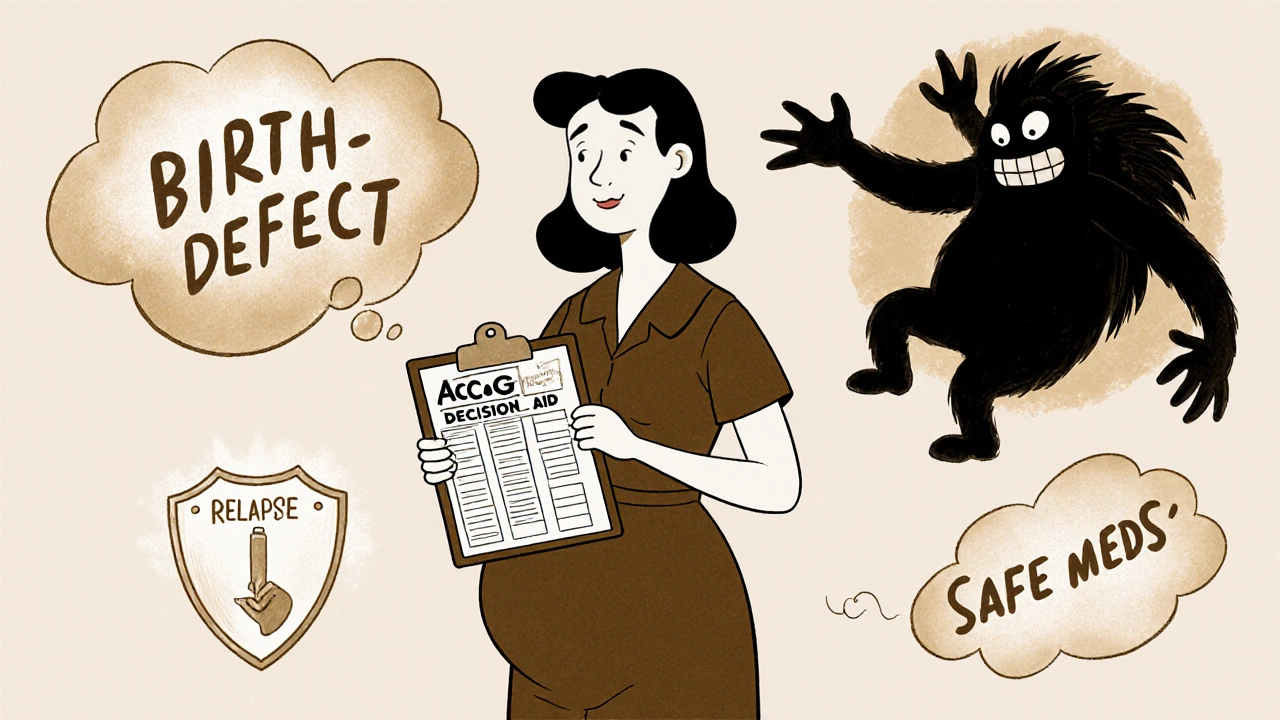
Shared Decision-Making: What It Really Looks Like
This isn’t your doctor saying, “Take this.” It’s a conversation. A two-way street. And it should start before you get pregnant.
The American College of Obstetricians and Gynecologists (ACOG) says: if you can stabilize your mental health for at least three months before conception, your chance of relapse drops by 40%. That’s huge.
Here’s how shared decision-making works in practice:
- Assess your risk. How many episodes have you had? How severe? Did you need hospitalization? Tools like the Edinburgh Postnatal Depression Scale help measure this.
- Know the numbers. Don’t just hear “some risk.” Ask: “What’s the actual chance?” For example: “Paroxetine increases heart defect risk from 8 in 1,000 to 10 in 1,000.” That’s 2 extra cases per 1,000 births. Context matters.
- Plan for setbacks. What if your anxiety spikes at 20 weeks? What if you can’t sleep? Have a backup plan - therapy, support groups, emergency contacts.
And yes - document it. A 2021 AMA study found that when providers documented these discussions, malpractice claims dropped by 65%. Why? Because when you’re involved, you’re less likely to feel blindsided.
What the Data Really Says About Risks
Here’s the twist: many studies overstate medication risks because they don’t account for the illness itself.
A 2024 umbrella review in Nature found that when researchers controlled for the underlying mental disorder, the risk from SSRIs dropped significantly. In other words - the depression might be causing the preterm birth, not the pill.
SSRIs are linked to a 1.5 times higher chance of small-for-gestational-age babies. But that risk is almost entirely seen in women with untreated depression. When depression is managed, that risk fades.
And here’s something most women don’t know: the FDA got rid of the old A, B, C, D, X pregnancy categories in 2015. Why? Because they were misleading. A “C” didn’t mean “dangerous.” It just meant “not enough data.” Now, labels give detailed summaries - not vague letters.
Real Stories, Real Outcomes
Reddit’s r/PostpartumDepression has over 125,000 members. A 2022 analysis of 1,243 posts found that 78% felt pressured to quit meds. 63% of those who did reported worse outcomes - hospitalization, suicidal thoughts, losing custody of their child.
On the flip side, women who used structured decision-making tools - like the ACOG-endorsed Mental Health Medication Decision Aid - were 3.2 times more likely to stick with their treatment. At six weeks postpartum, their depression scores were 37% lower.
One woman in Perth, 32, on sertraline for six years, got pregnant. She panicked. Her OB-GYN referred her to a perinatal psychiatrist. Together, they reviewed her history, her risk of relapse, and the data on sertraline. She stayed on it. Her daughter was born at 39 weeks, healthy. At six months, her Edinburgh score was 4 - mild, manageable. “I didn’t have to choose between being a mom and being well,” she said.
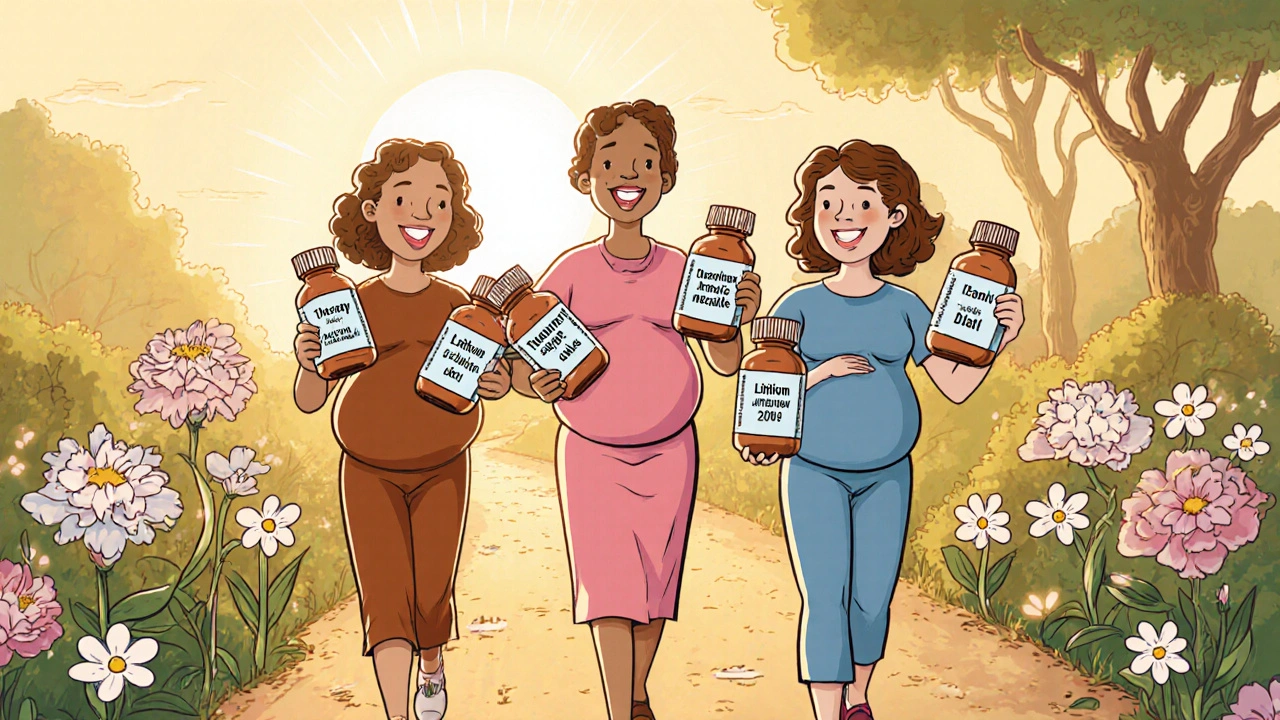
What’s Changing in 2025?
The National Pregnancy Registry for Psychiatric Medications has enrolled over 15,700 women. That’s more data than ever before.
In 2024, they added 12 new medications to track - including newer antipsychotics like brexpiprazole. And by 2026, experts predict tools will use machine learning to give you personalized risk estimates. Not “what happened to most women.” But “what happened to women like you - same age, same diagnosis, same meds.”
And it’s working. A 2022 cost-benefit study found every $1 spent on shared decision-making saved $4.70 in hospital stays, NICU care, and long-term therapy.
What You Should Do Right Now
If you’re pregnant or planning to be:
- Don’t stop your meds without talking to your provider.
- Ask for a referral to a perinatal psychiatrist - 87% of OB-GYNs now consult them regularly.
- Request the ACOG Mental Health Medication Decision Aid. It’s free. Updated quarterly.
- Write down your questions. Bring someone with you to appointments.
- Track your mood. Use a simple app or journal. Your history matters.
You’re not being selfish for wanting to stay well. You’re being responsible. Your mental health isn’t separate from your baby’s health. It’s part of it.
It’s Not About Perfect - It’s About Protected
No medication is 100% risk-free. And no untreated illness is safe either.
The goal isn’t to find the perfect pill. It’s to find the right balance - for you, for your baby, for your future.
With the right information, the right support, and the right conversation - you don’t have to choose. You can have both: a healthy baby, and a healthy you.
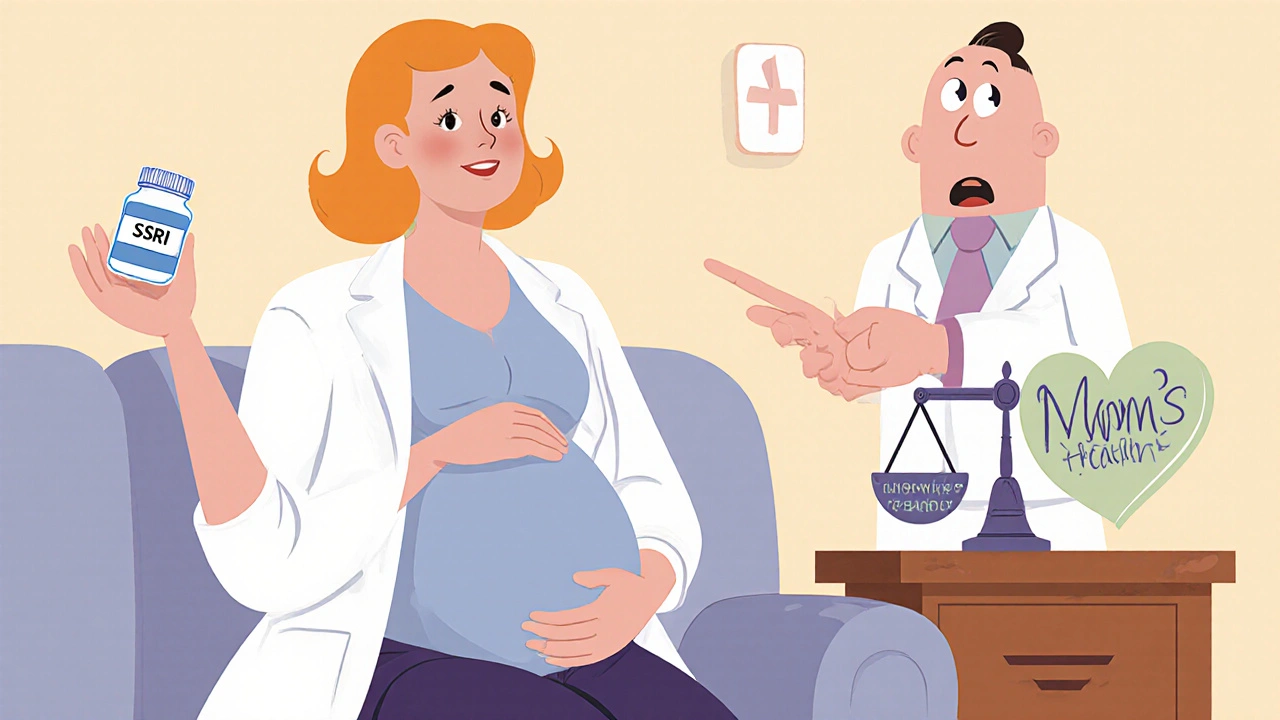


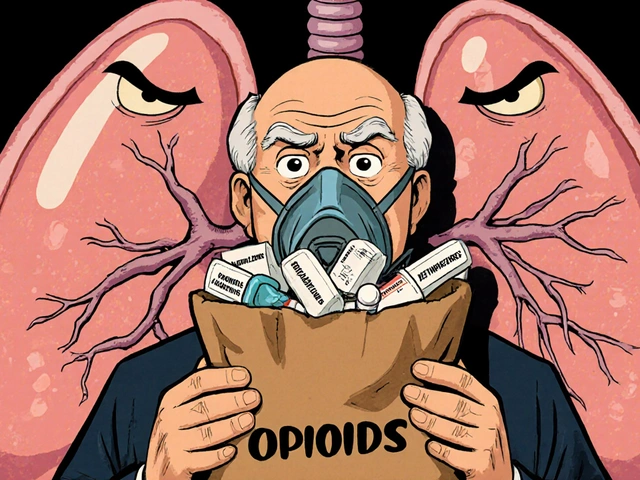
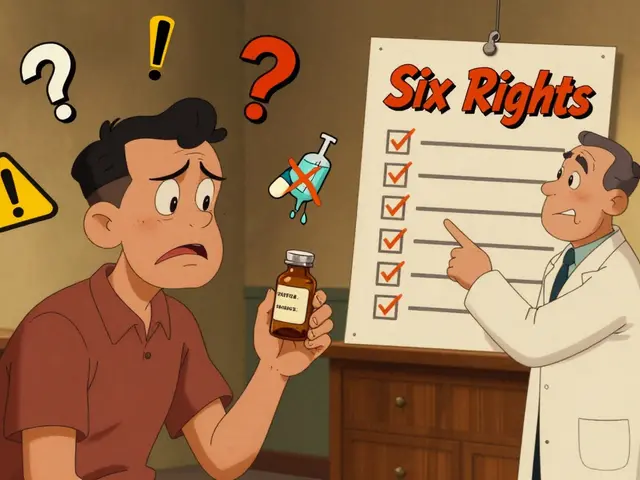
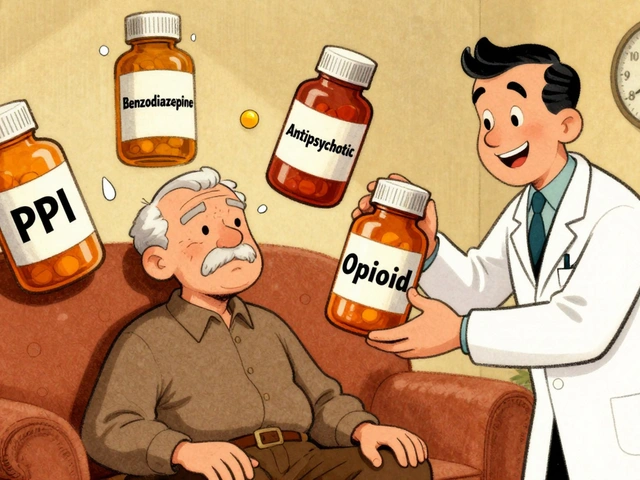
Comments
This post is a meme. 🤡 Stop scaring people with numbers. I stopped meds, had a baby, and now I'm happier than ever. Science is just corporate propaganda.
I'm so glad someone finally wrote this. I was terrified to stay on my SSRI but my therapist said the data says it's safer than relapsing. My son is 4 months old and I'm actually functioning. 💕
I just want to say thank you for not framing this as a moral dilemma. So many people act like choosing to stay on medication means you don't love your baby enough. But the truth is, if you're a wreck, you can't be the mom your kid needs. This isn't selfish. It's survival.
You know what they don't tell you? That the FDA and pharma companies have been hiding the real data since the 90s. SSRIs cause autism, they just reclassified it as 'developmental delay' to keep the profits rolling. And don't get me started on how the National Pregnancy Registry is funded by Big Pharma-15,000 women? More like 15,000 paid shills. The truth is buried under layers of corporate spin and government complicity. I saw my cousin's child-born on sertraline-now at age 7, can't make eye contact. Coincidence? I think not.
I’m just here to say I was on Zoloft during both pregnancies and my kids are now 8 and 10-super smart, athletic, socially brilliant. My mental health stayed stable. I didn’t have to choose. I had support. I had data. I had a doctor who listened. It’s possible. It’s not magic. It’s just… done right.
The real tragedy isn't the medication-it's the system that forces women into this impossible binary. We are told to be perfect mothers, yet denied the tools to be whole humans. The pill is not the enemy. The expectation that we should suffer silently while nurturing life is. The body is not a battlefield. It is a temple. And when we poison the temple with guilt, we poison the soul. What is safety, really, if it is bought with the currency of your own erasure?
I appreciate the nuance here-especially the part about controlling for the illness itself. So many studies just compare medicated vs. non-medicated without accounting for severity, prior episodes, or access to therapy. That’s like saying 'cars cause accidents' without mentioning road conditions, driver fatigue, or weather. The FDA’s old letter system was useless-like grading a symphony with A-F based on the color of the sheet music. The new narrative-based labels? That’s actually human. And the fact that shared decision-making reduces malpractice claims by 65%? That’s not just medical-it’s ethical.
They're lying. All of it. The 'data' is cooked. The registry? A front. The 'perinatal psychiatrists'? Paid shills for Big Pharma. I know a woman who took lamotrigine and her baby had a cleft palate. They said it was 'statistically insignificant.' But it happened. To HER. That's all that matters. And now they want you to trust 'machine learning' predictions? Next they'll be selling you fetal AI counselors. Wake up. This is control. Not care.
In Nigeria, we don't have these fancy pills. We have grandmas, herbs, prayers, and community. If you're depressed, you sit with your auntie, drink bitter leaf tea, and cry until your eyes are dry. No doctor tells you what to take. You just survive. Why are you Americans so scared of feeling? You think a pill fixes the soul? Your children will grow up with no roots. No culture. Just chemicals and algorithms. This is not progress. This is colonization of the mind.
BABA SABKA here. Look, I ain't no doctor but I've seen folks on meds and folks off meds. The ones who got support-family, church, counseling-they did better. The ones who got told 'just pray' or 'just quit'-they crashed hard. So stop acting like it's a binary. It's a spectrum. And the real villain? The system that doesn't fund therapy or maternal mental health clinics. Not the meds. The lack of care. Period.
Oh wow, another post that treats pregnant women like lab rats with a side of guilt. 🙄 'You're not selfish for wanting to stay well'-tell that to the 500 women who lost custody because they were 'unstable' while on meds. The system doesn't care if you're stable. It cares if you're compliant. And the 'decision aid'? It's a checklist written by a committee that's never held a crying newborn at 3 a.m.
The irony is breathtaking. We’ve reduced the sacred act of motherhood to a risk-benefit spreadsheet, while the real tragedy-our collective abandonment of community care, paid parental leave, and accessible therapy-is ignored. The pill is a Band-Aid on a hemorrhage. We’ve turned the womb into a clinical trial and called it empowerment. What if the real solution isn’t in the capsule… but in the village we’ve forgotten how to build?
This article is dangerously misleading. The data cited is cherry-picked. The FDA removed the letter categories not because they were misleading, but because they were too honest. The risks are real. The consequences are irreversible. And to suggest that 'you can have both' is irresponsible. There is no balance when one life is being traded for another. This is not science. It is moral relativism dressed in statistics.